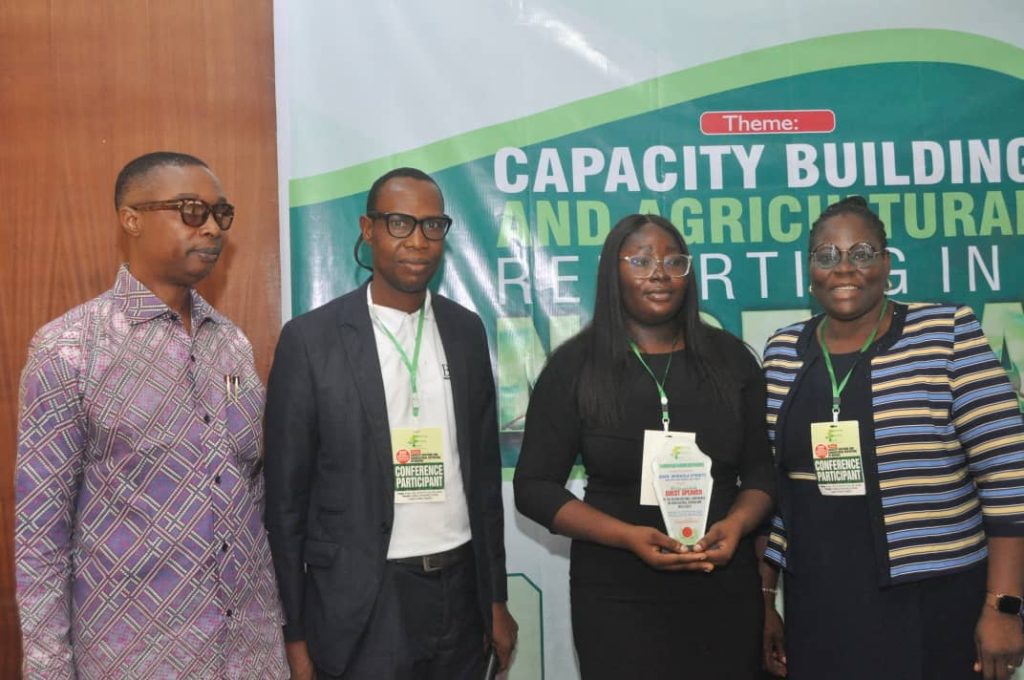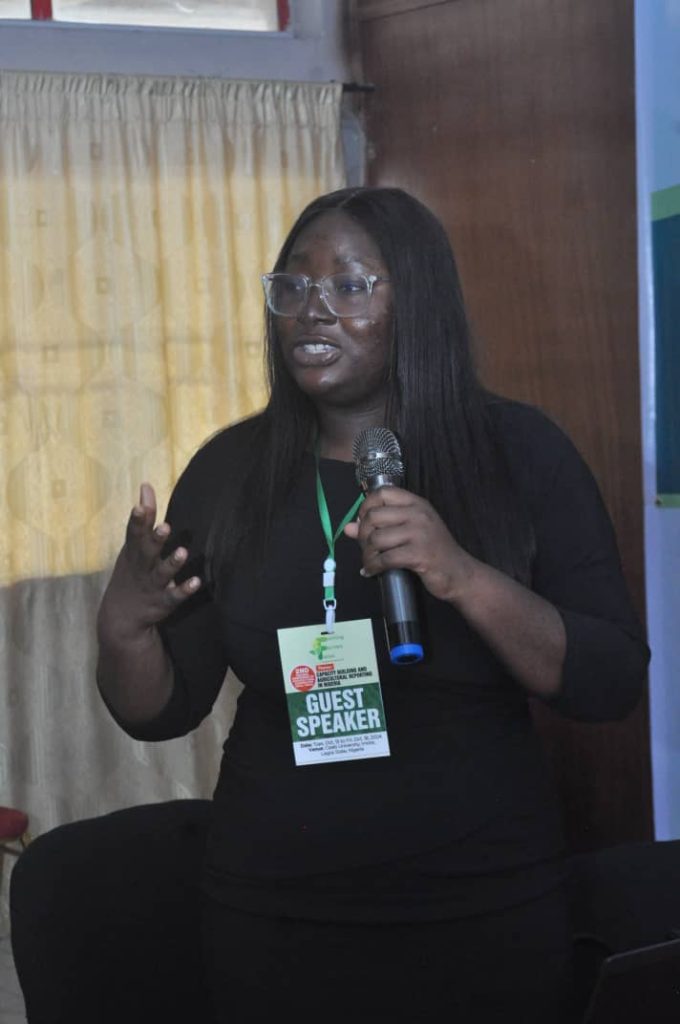Agricultural journalism in Nigeria has taken the centre stage, as the country shifts its focus from oil dependency to agriculture.
At the 2nd National Conference on Agricultural Journalism (NCAJ 2024), Barr. Wuraola Oyeniyi, from the law firm of Duale, Ovia & Alex-Adedipe, underscored the critical role that agricultural journalists play in showcasing issues affecting farmers and the agricultural industry.
Oyeniyi said Nigerian journalists cover a wide range of topics, including government policies, food security, environmental sustainability, and technological advancement like biotechnology and mechanised farming.
Given Nigeria’s rich and huge farming landscape, agricultural journalism has a far-reaching impact on public understanding of food production and agricultural practices, influencing public opinion, policy debates, and rural development.
However, she posited that journalists working in this field must be aware of the ethical and legal obligations they hold.
“Their reporting can directly impact livelihoods, businesses, and the environment. By covering crucial topics with accuracy and sensitivity, agricultural journalists can contribute to the global conversation on sustainability and food safety”, she said.
The lawyer highlighted common legal traps in agricultural journalism, including defamation, copyright infringement, misrepresentation, and breach of confidentiality, saying agricultural journalists should familiarise themselves with key legal concepts such as contract and privacy laws, intellectual property rights, and ethical reporting standards.
To avoid legal traps, she noted that agricultural journalists must verify information through due diligence and fact-checking, obtain permission, conduct legal reviews of articles, and understand local and international law. “They should also use clear attribution, protect confidential sources, and exercise caution with social media”, she cautioned.

Asides legal compliance, she opined that Nigerian agricultural journalists must adhere to ethical journalism standards, including accuracy, impartiality, and fairness, noting that when covering sensitive topics, journalists should strive to present multiple perspectives and avoid bias.
The legal practitioner underscored the importance of comprehensive understanding of the legal framework governing agriculture in Nigeria.
By adhering to ethical standards, journalists can protect themselves from lawsuits while contributing meaningfully to agricultural discourse because effective communication of new agricultural knowledge is crucial, and agricultural journalists play a vital role in facilitating this process.
However, this comes with various legal risks that journalists should be aware of and familiar with very well.
The impact of agricultural journalism on rural development cannot be overstated. By highlighting issues affecting farmers and the agricultural industry, journalists can promote positive change and contribute to Nigeria’s economic diversification efforts.
“Agricultural journalists must navigate complex ethical challenges, balancing objectivity and sensitivity in their reporting. Continuous education and training in journalism ethics are essential for journalists to navigate evolving ethical challenges effectively”, she stated.
Ultimately, the role of agricultural journalists in Nigeria’s agricultural development is multifaceted and critical. By understanding the legal and ethical landscape, journalists can make a meaningful impact on the industry and contribute to Nigeria’s economic growth, the guest speaker affirmed.

